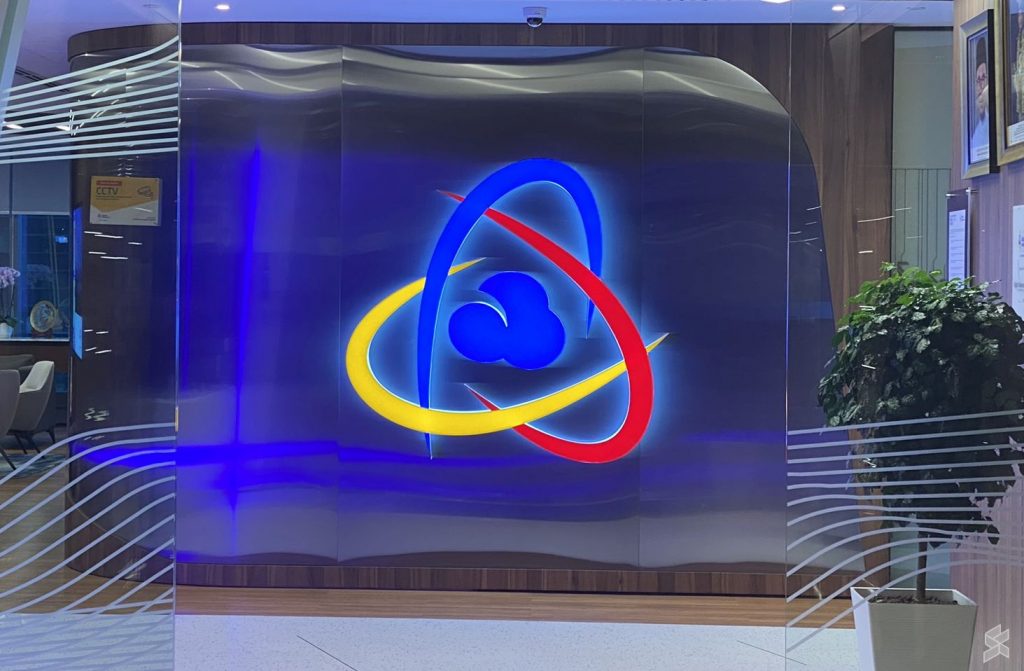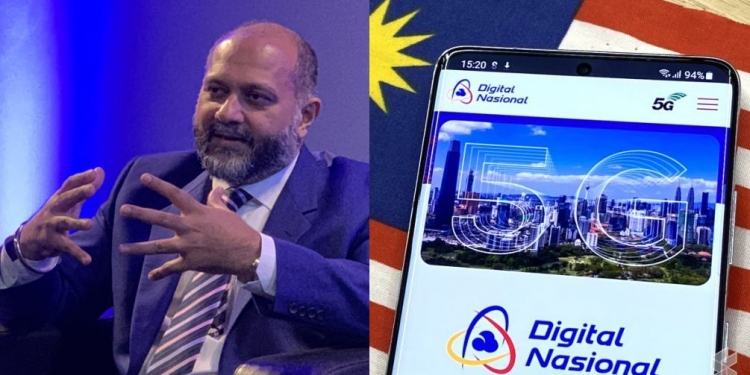Digital Minister Gobind Singh Deo has debunked claims that Digital Nasional Berhad (DNB) is fully funded with government funds. This comes after recent allegations that Malaysia’s first 5G network is fully funded by rakyat and is putting RM16.5 billion of taxpayers’ money at stake.
Govt has injected RM950 million into DNB
Gobind said that the RM16.5 billion budget for DNB across 10 years do not involve public funds apart from two things: Initial equity injection of RM500 million in 2021 and shareholder loan of RM450 million in May 2023 from the Ministry of Finance.
He said the 5G rollout by DNB was mostly funded via private borrowings which include loans guaranteed by the government and other sources of financing.
The Minister shared that DNB has spent RM5 billion to date for the development and implementation of the 5G network.
No second 5G network until MOF gets reimbursed

He iterated that the government’s total funding of RM950 million and bank loans guaranteed by the government will be taken over and to be repaid back by the telcos as part of Malaysia’s process to transition from a 5G single wholesale network to a dual network model.
Gobind added that the second 5G network will not be implemented until the funding by the Ministry of Finance into DNB are returned. To emphasize, Gobind said the government will be reimbursed by the telcos and as a result, there are no losses incurred by the government.
The Minister also said since DNB was placed under the Digital Ministry’s purview, they have made it very clear that they will conduct a due diligence. Following the exercise, he said there no issues when it comes to financials and administrations.
When asked by Ipoh Timor MP Howard Lee about the findings from the audit and due diligence from authorities included the MACC, Gobind says he will share a letter from the Malaysian Anti-Corruption Commission (MACC) on their findings. He further added that before the four telcos (CelcomDigi, Maxis, U Mobile and YTL) conclude their share subscription agreement to take a cumulative 65% share of DNB, a due diligence process was carried out to ensure that the daily operations of DNB were conducted appropriately.
He said due diligence process was necessary to ensure DNB’s business and operations are in order and it was concluded that everything was in order.
Gobind also highlighted DNB’s success of deploying over 82% 5G population coverage and catering to over 16 million subscribers on their network in less than 3 years. He added that this demonstrates DNB’s performance in developing the 5G infrastructure which has been recognised as one of the best in the world.
Moving forward, he said Malaysia needs to look at how to further strengthen the network and infrastructure to ensure all Malaysians including enterprise users can continue to enjoy seamless access which will further improve the way we do things today. Gobind says DNB will remain a key industry player that will continue to carry out its implementation for 5G.
Questions remain on second 5G network rollout
To recap, U Mobile has been named as the telco to implement Malaysia’s second 5G network. MCMC’s decision to award a telco with lower number of sites, subscribers and revenue had raised questions among analysts including a former MP.
At the moment, four telcos have acquired equity stake in DNB and it isn’t clear if U Mobile will be the sole telco to develop the new network or will it seek collaboration from other telcos. Telcos that are involved in the second 5G network will be required to divest their interest in DNB. Similarly, the Malaysian government via the Ministry of Finance will eventually divest their shareholding which will turn DNB into a fully private company.
The regulator has yet to provide any details of the conditions set for U Mobile which include coverage targets and rollout plans for the second 5G network. In order for a dual 5G network model to work, both entities must be sustainable to ensure healthy competition and a level playing field.








